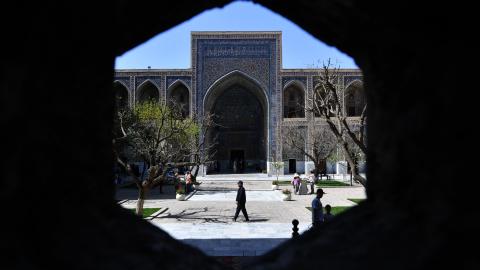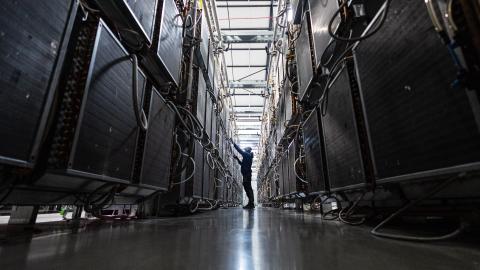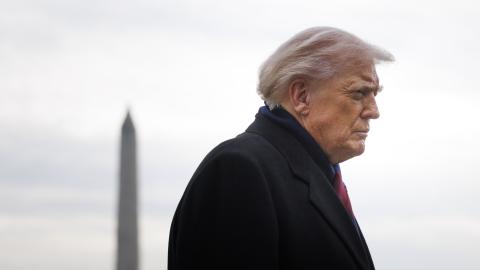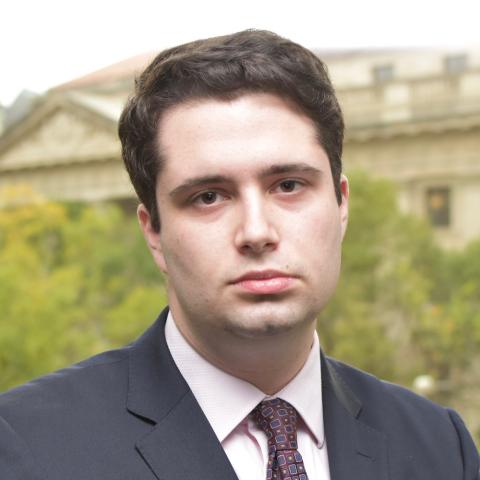Newark Airport's landing fees are 60 percent higher than any other of its American competitors, so why doesn't the Port Authority of New York and New Jersey which oversees the airport have the money for better upkeep and modernization? The answer is that Port Authority diverts landing fee money to fund other projects. John Tierney at City Journal explains:
If the airports were separately managed, New Yorkers would enjoy the same kind of benefits enjoyed by travelers in San Juan and foreign airports: renovated terminals, better services, lower costs, more flights, cheaper fares, more innovation. To reduce congestion and delays, the managers could add another runway at JFK or Newark, or both, and they could use their control of the gates to encourage competition. Like the managers of Heathrow, they might provide a rail link to the center of the city. In no case would they force passengers to arrive at the terminal by wheeling their suitcases along a highway.
It’s a lovely vision, but how—to be non-hypothetical—could politicians be induced to surrender control of the airports?
The first step: prevent them from raiding the airports’ coffers to subsidize pet projects. United Airlines is trying to do this, asking the FAA to stop the Port Authority from diverting its Newark revenue. The airline’s formal complaint details Newark’s “bloated” costs—like the $242,000 in annual compensation per aircraft-rescue worker. It also notes that the airport raises a “staggering” amount of money through landing fees that are “by far the highest” in the country—almost 60 percent more than the next-highest, O’Hare. Much of this revenue goes to outside projects, which the Port Authority claims is permissible because of the grandfathered exemption in federal law. United argues that the agency’s diversions have become so extreme that they’re illegal and should be stopped.
Port Authority is the poster boy of bloated blue governance. Established in 1921 to coordinate major infrastructure construction and maintenance between New York and New Jersey, Port Authority oversees assets ranging from PATH commuter rail and all the major regional airports to the Port Newark-Elizabeth Marine Terminal. It has been the bane of politicians and others for decades. The Tappan Zee Bridge in upstate New York was constructed over one of the Hudson River's widest spans rather than over a much narrower section a few miles south simply because Governor Dewey didn't want to deal with the Port Authority, which has a 25-mile zone of influence around New York City. This was in 1955. Since then, Port Authority has been the frequent subject of corruption probes and a constant source of headaches and delays. Governor Andrew Cuomo has lately been locked in a struggle to give his office more control over the Authority's procurement practices.
It's going to be a long slog, and Cuomo hasn't shown any exceptional ability to bring down costs himself. His oversight of the new Tappan Zee Bridge did help control expenses somewhat by taking a design-build approach, but Cuomo was unable to keep the Second Avenue Subway from going way over budget at $2.6 billion per mile—several times what any comparable system anywhere else in the world cost. And the bottom line is that the governor has, reportedly, micromanaged both the Tappan Zee Bridge and the Second Avenue Subway. That's not an ideal system for any infrastructure construction, and it isn't a solution at all for projects too small for the governor to notice them.
The bottom line is that the Port Authority needs major reform. There are a ton of savings to unlock by making the Authority more responsive and responsible. Smart politicians on both sides of the aisle in New York and New Jersey should be interested in fixing this mess.

















